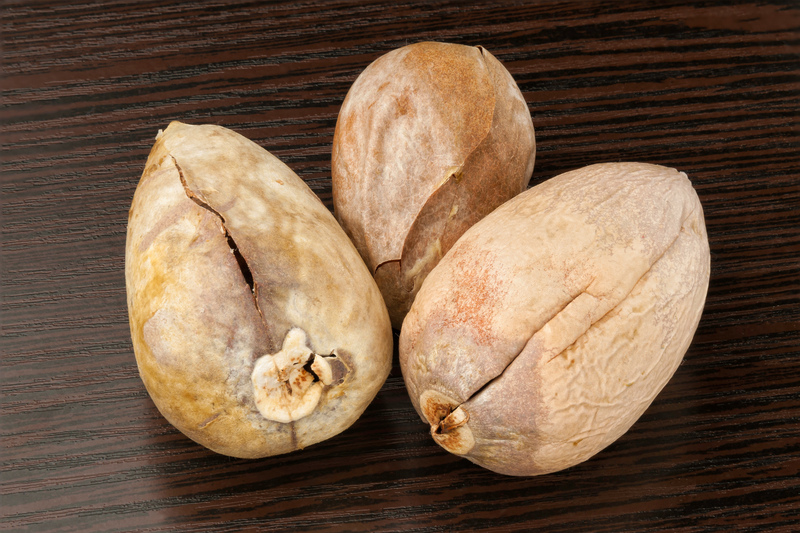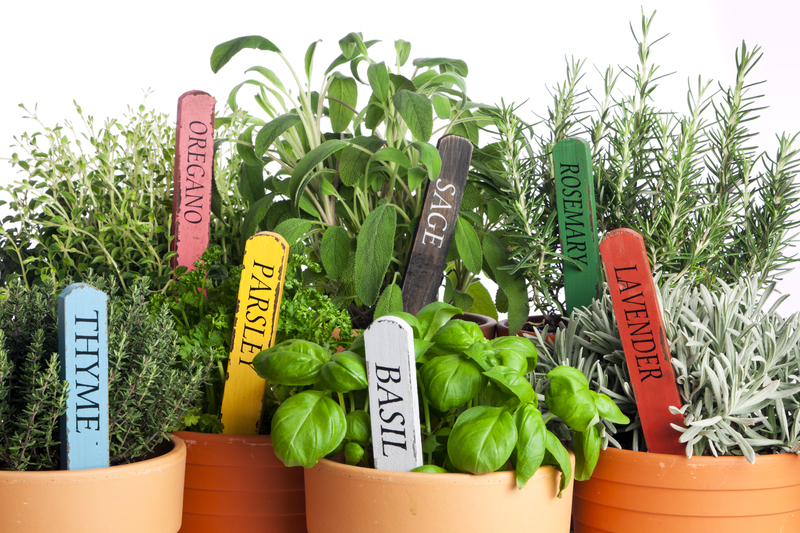Changing Waste into Fertile Soil
Posted on 18/06/2025
In our rapidly developing world, one of the most pressing environmental challenges is the management of waste. However, emerging solutions highlight that waste, instead of being a burden, can be transformed into valuable resources. Changing waste into fertile soil is not only possible--it's practical, beneficial, and increasingly vital. This article explores how organic waste can be recycled into rich, productive soil, benefitting both the environment and human society.
Why Transform Waste into Fertile Soil?
Turning waste into fertile soil addresses several crucial needs:
- Reducing landfill overflows and environmental pollution.
- Mitigating greenhouse gas emissions from decomposing organic waste.
- Restoring soil fertility and closing the nutrient loop.
- Supporting sustainable agriculture and food security.
By converting our waste into fertile soil, communities benefit from healthier ecosystems and more resilient agricultural practices.
The Science Behind Soil Fertility
Soil fertility depends on adequate nutrients, organic matter, and a vibrant ecosystem of microorganisms. Synthetic fertilizers, while providing nutrients, cannot replicate the complex benefits of organic matter. Compost and organic amendments from waste materials improve the soil's physical structure, water retention, and biological activity, supporting robust plant growth.

Different Types of Organic Waste Suitable for Soil Improvement
Not all waste is created equal, especially when it comes to soil enrichment. The following waste materials are particularly effective for transforming into fertile soil:
- Food scraps: Fruit and vegetable peels, coffee grounds, eggshells, etc.
- Yard trimmings: Grass clippings, leaves, small branches.
- Agricultural waste: Crop residues, manure, straw.
- Paper products: Newspaper, cardboard (uncoated and shredded).
Note: Avoid composting meat, dairy, diseased plants, or chemically treated wood as these can attract pests or introduce toxins.
The Methods of Turning Waste into Fertile Soil
1. Composting: Nature's Recycling System
Composting is the most accessible and widely practiced method for converting organic waste into fertile soil. It involves the biological decomposition of organic matter under controlled conditions. The end product, called compost, is a nutrient-rich, dark, crumbly substance known as "black gold" among gardeners.
How Composting Works
- Aerobic decomposition: With adequate oxygen, microorganisms break down organic matter, generating heat and producing compost.
- Anaerobic decomposition: Occurs in the absence of oxygen; slower, producing stronger odors and less desirable for home composting.
Steps for Home Composting
- Choose a location: Find a dry, shaded spot near a water source.
- Build your pile: Alternate green materials (nitrogen-rich, e.g., vegetable scraps) with brown materials (carbon-rich, e.g., leaves).
- Maintain moisture: Keep the pile moist but not soggy.
- Turn regularly: Aerate by turning the pile every few weeks to facilitate decomposition.
- Harvest: In a few months, dark, earthy-smelling compost will be ready to enrich your garden beds.
2. Vermicomposting: Using Worms for Richer Soil
Vermicomposting employs worms (typically red wigglers) to accelerate the breakdown of organic waste. The worms consume food scraps, producing castings--an exceptionally fertile soil amendment.
- Works well indoors and in small spaces.
- Reduces household waste volume.
- Produces nutrient-dense worm tea (liquid fertilizer).
Vermicompost is especially valued for its ability to enhance plant growth and soil structure.
3. Bokashi: A Fermentation Approach
The Bokashi method uses a special inoculant containing beneficial microbes to ferment all types of kitchen waste--including meat and dairy, which aren't suitable for traditional composting. The process takes place in a sealed container, avoiding odors and pests. After fermentation, the material is buried in soil, where it quickly becomes nutrient-rich humus.
4. Large-Scale Waste-to-Soil Technologies
Beyond home gardening, many municipalities and farms use advanced techniques such as:
- Aerated static piles: Forced air accelerates decomposition in large compost heaps.
- In-vessel composting: Waste is processed in closed containers for efficiency and odor control.
- Digesters: Anaerobic digestion produces biogas for energy and nutrient-rich digestate for soil amendment.
Benefits of Converting Waste into Fertile Soil
Environmental Advantages
- Reduces landfill use and associated leachate or methane emissions.
- Recovers nutrients that would otherwise be lost.
- Improves soil health and biodiversity, supporting climate change mitigation efforts.
Economic and Social Hurdles Overcome
- Decreases disposal costs for communities and businesses.
- Creates green jobs in composting and sustainable agriculture sectors.
- Promotes food security by increasing crop yields and resilience.
Transforming waste into fertile soil aligns with international sustainability goals, benefiting present and future generations.
Practical Tips for Changing Waste to Fertile Soil at Home
What Can You Compost?
- Fruit and vegetable scraps
- Coffee grounds and filters
- Tea bags (non-plastic)
- Eggshells
- Yard waste (clippings, leaves, twigs)
- Paper and cardboard (shredded)
What Should Be Avoided?
- Meat and fish scraps (unless using Bokashi)
- Dairy products
- Oily or greasy foods
- Pesticide-treated clippings
- Pet waste
Key Steps to a Thriving Compost Pile
- Balance "greens" and "browns": Maintain a 2:1 ratio of carbon-rich (browns) to nitrogen-rich (greens).
- Keep it moist: Compost should feel like a damp sponge.
- Aerate regularly: Turn the pile with a fork to introduce oxygen.
- Patience: Let natural processes work!
The Impact of Turning Waste into Fertile Soil on Agriculture
The biggest beneficiary of turning garbage into fruitful soil is agriculture. Here's why:
- Enhanced soil structure: Compost increases porosity, water-holding capacity, and root development.
- Boosted nutrient availability: Organically-derived nutrients are released slowly, reducing need for synthetic fertilizers.
- Pest and disease resistance: Healthy soils foster resilient plants and beneficial microbes that suppress pathogens.
- Climate resilience: Carbon sequestration helps mitigate climate change, while improved soil retains moisture during droughts.
Common Challenges and Solutions in Waste-to-Soil Conversion
Odor and Pests
- Causes: Too much green material, poor aeration, or composting inappropriate materials.
- Solution: Add more browns, turn the pile, avoid meat/dairy unless using closed systems like Bokashi.
Slow Decomposition
- Causes: Lack of moisture, poor aeration, imbalanced ratios.
- Solution: Adjust water levels, turn the pile, balance green and brown materials.
Unwanted Weed Seeds
- Solution: Ensure composting temperatures reach 55-65?C (130-150?F) to kill seeds.
Innovations and Future Trends in Waste Recycling for Soil Enrichment
Modern technology is accelerating the process of changing waste into productive soil:
- Smart composters: Automated solutions for faster and odor-free composting, even in apartments.
- Microbial inoculants: Specialized bacteria and fungi to enhance organic matter breakdown and pathogen suppression.
- Biosolids reuse: Treated sewage sludge can be safely used in agriculture to close the nutrient loop.
- Biochar: Charred organic matter added to soil to boost fertility and sequester carbon.
As research continues, expect even more effective techniques for soil regeneration using various waste streams.
Global Initiatives: Turning the Tide on Waste
Countries around the world recognize the value of transforming organic waste into fertile soil and are implementing policies to encourage composting and soil improvement:
- Europe: Many European cities have adopted mandatory source separation and municipal composting.
- United States: Programs like "Compost2023" and California's SB 1383 drive organic waste diversion from landfills.
- India and Africa: Rural composting initiatives address both waste challenges and soil degradation.
Collective efforts demonstrate the critical role of composting and waste recapture in sustainable development.
Conclusion: Turning Today's Waste into Tomorrow's Harvest
In summary, changing waste into fertile soil is not only an environmentally sound practice but also an economically viable and socially responsible approach to managing organic waste. By integrating composting, vermicomposting, Bokashi, and other waste-to-soil technologies, individuals and societies can reduce pollution, restore the land, and nourish future generations.
Every banana peel, lawn clipping, and coffee filter has the potential to become part of a thriving garden or farm. The process of converting waste into productive, living soil is a key to a sustainable planet. Start small, involve your community, and witness the transformation from trash to treasure in your own backyard!

Frequently Asked Questions about Changing Waste into Fertile Soil
What is the main benefit of turning waste into soil?
The primary benefit is reducing landfill waste while enriching soil for agriculture and landscaping, thus contributing to a greener planet.
How long does it take to compost organic waste?
With the right balance of materials, aeration, and moisture, home compost can mature in 2-6 months. Methods like vermicomposting or using accelerators can shorten this period.
Is composting difficult to start at home?
No! Starting a small pile or vermicomposting bin is easy and requires minimal investment. Anyone can transform their kitchen and yard waste into healthy soil at home.
Can all waste be turned into fertile soil?
Only organic, biodegradable material should be composted. Plastic, metals, chemicals, and treated wood should never be included.
Ready to Change Waste into Fertile Soil?
Take your first step today--whether at home, school, or in your community. Together, we can create fertile ground for future growth by reimagining waste not as a problem, but as the very source of life for our soil.
Latest Posts
Elevate Your Outdoor Space with Minimalist Zen Garden Design Techniques
Innovative Low-Maintenance Gardening without Breaking the Bank
Empower Climate Action with the Simple Act of Gardening

